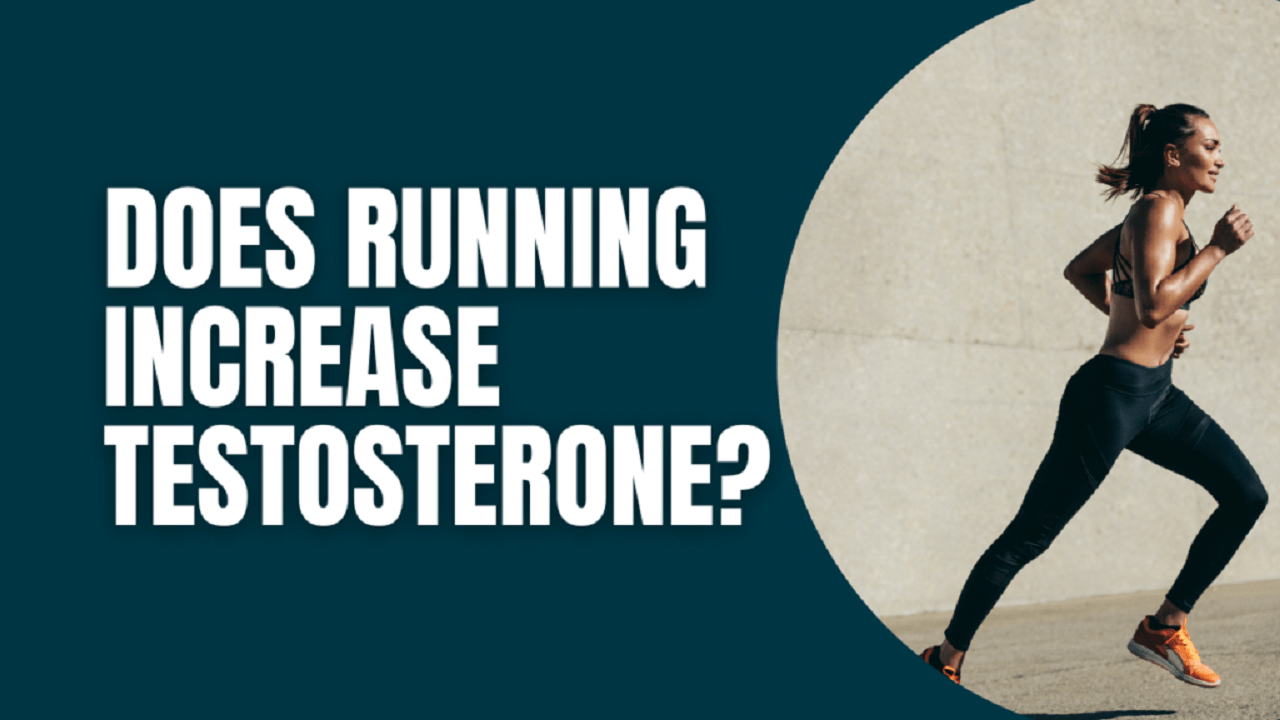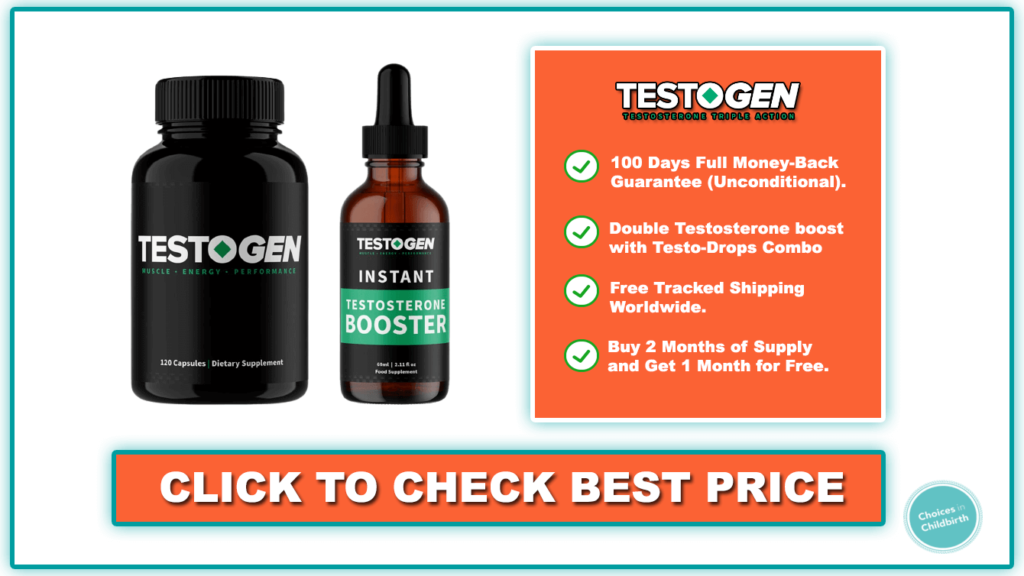Does Running Increase Testosterone
Contents
- 1 Does Running Increase Testosterone
- 2 What is Testosterone?
- 3 Functions of Testosterone in the Body
- 4 Normal Testosterone Levels
- 5 The Role of Exercise in Testosterone Production
- 6 General Benefits of Exercise
- 7 How Exercise Affects Hormones
- 8 Types of Running
- 9 Sprinting
- 10 Long-Distance Running
- 11 Interval Training
- 12 Running and Testosterone
- 13 Studies Linking Running to Testosterone Levels
- 14 Mechanisms Behind the Connection
- 15 Benefits of Running for Testosterone
- 16 Improved Cardiovascular Health
- 17 Enhanced Muscle Mass and Strength
- 18 Reduced Stress and Cortisol Levels
- 19 Optimal Running Practices for Boosting Testosterone
- 20 Frequency of Running
- 21 Duration and Intensity
- 22 Combining Running with Other Exercises
- 23 Potential Downsides of Running on Testosterone
- 24 Overtraining and Its Effects
- 25 Importance of Rest and Recovery
- 26 Nutrition and Testosterone
- 27 Diet Tips for Supporting Testosterone Production
- 28 Foods to Include
- 29 Foods to Avoid
- 30 Lifestyle Factors Influencing Testosterone
- 31 Sleep and Testosterone
- 32 Stress Management
- 33 Avoiding Toxins
- 34 Supplements and Testosterone
- 35 Natural Supplements
- 36 Are They Necessary?
- 37 Personal Stories and Experiences
- 38 Testimonials from Runners
- 39 Real-Life Success Stories
- 40 Common Myths About Running and Testosterone
- 41 Debunking Myths
- 42 Facts vs. Fiction
- 43 Conclusion
- 44 FAQs
- 45 References
Hey there, I’m Jonathan Deventer. If you’re like me, always on the lookout for ways to boost your health and fitness game, you might have wondered, “Does running increase testosterone?” Well, grab your favorite running shoes, and let’s dive into this topic together.
Testosterone isn’t just about bulging biceps and deep voices. It’s a vital hormone that plays a massive role in our bodies. From muscle growth and bone density to mood and energy levels, testosterone is pretty much the body’s MVP. And since running is such a popular exercise, it’s only natural to ask if it can help pump up those testosterone levels too. So, let’s explore the nitty-gritty of running and its potential effects on testosterone.
Related Post: Feeling the Lag? How Can Exercise Increase Testosterone
What is Testosterone?
Testosterone is a steroid hormone. For men, it’s mainly produced in the testicles, while women produce it in smaller amounts in the ovaries. It’s not just a “male” hormone – women need it too. This hormone is a key player in muscle growth, bone density, and overall energy levels.
Functions of Testosterone in the Body
Testosterone wears many hats in the body. Here are some of its main gigs:
- Muscle Mass: It’s crucial for building and maintaining muscle.
- Bone Density: Keeps our bones strong and sturdy.
- Fat Distribution: Helps regulate where and how we store fat.
- Mood and Energy: Influence our mood, energy levels, and even mental clarity.
- Sexual Health: Essential for a healthy libido and sexual function.
Normal Testosterone Levels
What’s considered normal can vary, but typically:
- Men: 300 to 1,000 ng/dL
- Women: 15 to 70 ng/dL
And here’s a fun fact: testosterone levels naturally decline as we age. This is why keeping those levels in check is so important.

- Increased physical and mental energy so you can get the most out of every single day
- Improved sex drive without tiring out too quickly
- Safe, natural, soy-free, grain-free, dairy-free, and made with clinical-quality ingredients
- Every order comes with a lifetime guarantee!

- Increase Testosterone without side effects
- Build quality lean muscle and increase strength
- Shed fat and improve body composition
- Boost stamina before hitting the gym
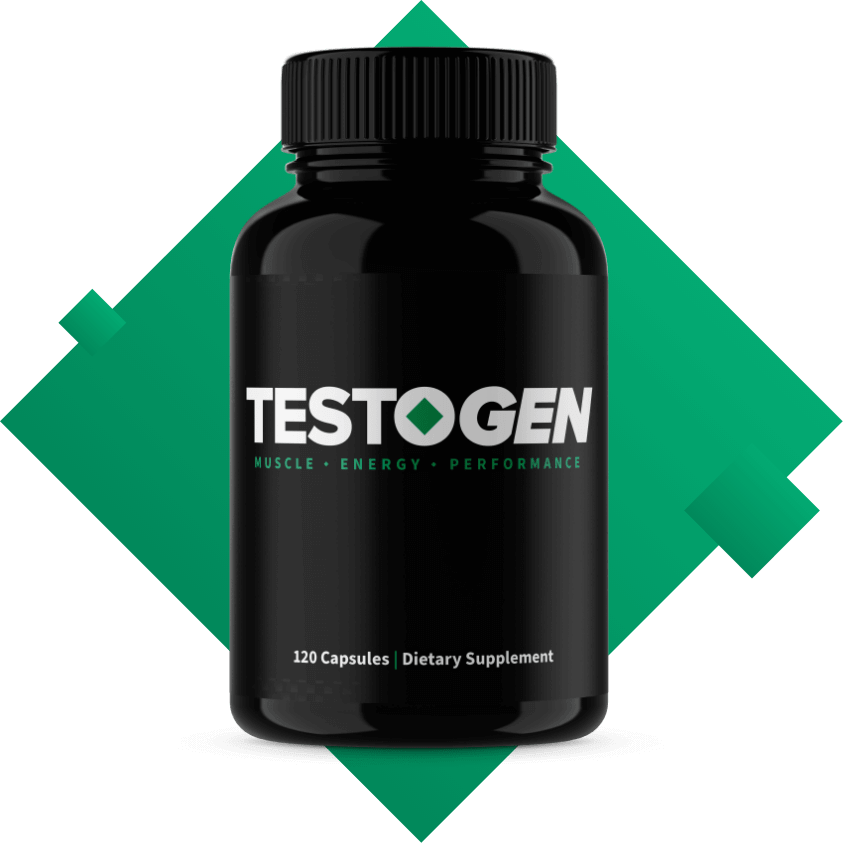
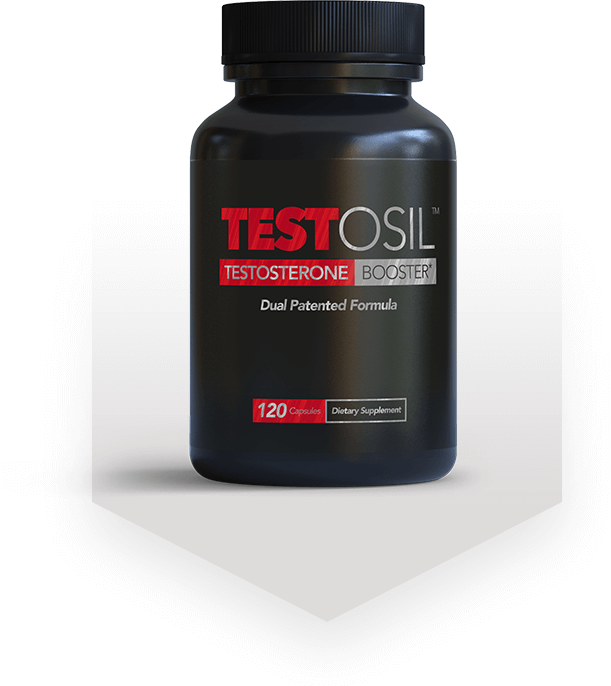
- Skyrockets TESTOSTERONE levels by up to 434% NATURALLY with exercise!
- Boosts OXYGEN utilization during exercise by elevating V02max by 5.67% in just 12 weeks!
- Reduces CORTISOL (the strength-depleting ‘’stress’’ hormone) by a staggering 27.9% in just 8 weeks!
- Reduces BODY WEIGHT by 3% in just 8 weeks.
The Role of Exercise in Testosterone Production
General Benefits of Exercise
We all know that exercise is great for our health. It helps us stay fit, manage weight, improve mood, and keep our hearts in tip-top shape. But did you know it can also influence our hormones?
How Exercise Affects Hormones
When we exercise, especially at high intensities, our bodies release hormones to help repair and build muscles. This includes testosterone. So, workouts can be a great way to keep those testosterone levels healthy and robust.
Types of Running
Sprinting
Sprinting involves short, intense bursts of running. Think of those 100-meter dashes. These can get your heart pumping and your muscles working, leading to a significant spike in testosterone.
Long-Distance Running
Endurance running, like marathons, is excellent for cardiovascular health. However, its impact on testosterone can differ from sprinting.
Interval Training
Interval training is a mix of high-intensity sprints and rest periods. It’s super efficient and effective for boosting overall fitness and potentially increasing testosterone.
Running and Testosterone
Studies Linking Running to Testosterone Levels
Research shows mixed results, but many studies indicate that high-intensity interval training (HIIT) and sprinting can significantly boost testosterone levels. It’s all about the intensity and how it challenges your body.
Mechanisms Behind the Connection
The stress and muscle engagement from intense running stimulates testosterone release. Plus, running helps reduce body fat, which is linked to higher testosterone levels.
Benefits of Running for Testosterone
Improved Cardiovascular Health
A healthy heart is like the body’s best friend. It supports better hormone circulation, including testosterone. So, keeping your heart in good shape with running can indirectly boost your testosterone.
Enhanced Muscle Mass and Strength
Running, especially sprints and hill workouts, engages large muscle groups. This promotes muscle growth and strength, which are linked to higher testosterone levels.
Reduced Stress and Cortisol Levels
Regular running helps manage stress and reduce cortisol, a hormone that can negatively impact testosterone production. Less stress means better hormone balance.
Optimal Running Practices for Boosting Testosterone
Frequency of Running
Aim for at least three running sessions per week. Mix up the intensity and duration to keep your body challenged and avoid hitting a plateau.
Duration and Intensity
Short, intense runs (like sprints) are more effective for boosting testosterone compared to long, steady-state runs. So, don’t be afraid to go all out for a few minutes.
Combining Running with Other Exercises
Incorporate strength training and other high-intensity workouts to maximize testosterone production. A balanced routine is key.
CRAZYBULK’S
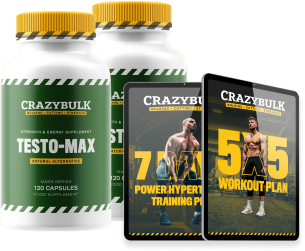
TESTO-MAX
- Support Healthy Libido
- Boost Confidence & Self-Esteem
- Melt Inches Off Waistline
- Increase Dense Muscle Mass
- Improve Hormone Balance
Potential Downsides of Running on Testosterone
Overtraining and Its Effects
Excessive running without adequate rest can lead to overtraining, which may lower testosterone levels and increase cortisol. It’s essential to find the right balance.
Importance of Rest and Recovery
Adequate rest is crucial for hormone balance. Make sure you’re getting enough sleep and recovery time between workouts. Your body will thank you.
Nutrition and Testosterone
Diet Tips for Supporting Testosterone Production
A balanced diet rich in nutrients supports healthy hormone levels. Focus on whole foods, lean proteins, healthy fats, and complex carbohydrates.
Foods to Include
- Lean Meats: Rich in protein and zinc.
- Eggs: Contain cholesterol, a precursor for testosterone.
- Nuts and Seeds: Provide healthy fats and micronutrients.
- Leafy Greens: High in magnesium, linked to testosterone production.
Foods to Avoid
- Processed Foods: Often high in trans fats and sugar, which can negatively affect hormone balance.
- Alcohol: Excessive consumption can lower testosterone levels.
Lifestyle Factors Influencing Testosterone
Sleep and Testosterone
Quality sleep is vital for hormone production. Aim for 7-9 hours of uninterrupted sleep each night to keep your testosterone levels in check.
Stress Management
Chronic stress elevates cortisol levels, which can suppress testosterone production. Incorporate stress-relieving activities like meditation, yoga, and hobbies to keep stress at bay.
Avoiding Toxins
Limit exposure to endocrine disruptors found in plastics, pesticides, and certain personal care products. These can interfere with hormone balance.
Supplements and Testosterone
Natural Supplements
Supplements like vitamin D, zinc, and ashwagandha may support testosterone production. Always consult with a healthcare provider before starting any new supplement regimen to ensure it’s right for you.
Are They Necessary?
While supplements can help, they should complement, not replace, a healthy lifestyle and balanced diet. Think of them as the cherry on top, not the whole cake.
Personal Stories and Experiences
Testimonials from Runners
Many runners report feeling more energetic and experiencing improved mood and libido after incorporating high-intensity runs into their routine. These personal experiences can be incredibly motivating.
Real-Life Success Stories
Individuals who combine running with strength training and a healthy diet often see significant improvements in their testosterone levels and overall well-being. It’s all about finding what works best for you.
Common Myths About Running and Testosterone
Debunking Myths
Myth: Long-distance running always lowers testosterone.
Fact: While excessive endurance running can lower levels, balanced training can boost them.
Facts vs. Fiction
Fiction: Running is only for cardiovascular health.
Fact: Running, especially in high-intensity forms, can also enhance hormone production and muscle strength.
Conclusion
So, does running increase testosterone? Absolutely, but it’s all about balance. High-intensity forms like sprints and interval training can definitely give your testosterone a boost. Just make sure you’re also eating right, getting enough rest, and mixing in some strength training. Your hormones – and your overall health – will thank you.
FAQs
Does running increase testosterone in women?
Yes, high-intensity running can boost testosterone levels in women, supporting muscle strength and overall health.
How long does it take to see an increase in testosterone from running?
Results can vary, but many individuals notice improvements in energy and mood within a few weeks of regular high-intensity running.
Can running too much lower testosterone levels?
Yes, excessive endurance running without proper rest can lead to overtraining and lower testosterone levels.
Is running better than weightlifting for increasing testosterone?
Both have benefits. High-intensity running can boost testosterone, but combining it with weightlifting may yield the best results.
What other exercises boost testosterone levels?
Weightlifting, HIIT workouts, and exercises that engage large muscle groups, such as squats and deadlifts, are excellent for boosting testosterone.
So there you have it – the lowdown on running and testosterone. Lace-up those shoes, hit the track, and watch your fitness and hormone levels soar!
References
· High-Intensity Interval Training (HIIT) and Testosterone:
- Research indicates that HIIT can significantly boost testosterone levels. According to a study published on ScienceDirect, HIIT exercises lead to significant hormonal responses, including elevated testosterone levels (NCBI).
- Healthline also supports the claim that high-intensity exercises, like sprints, can boost testosterone levels more effectively than moderate-intensity exercises (NCBI).
· Running and Testosterone:
- Regular running, especially at moderate intensity, has been shown to maintain healthy testosterone levels. WebMD explains that while moderate running can have beneficial effects on testosterone, excessive long-distance running may lead to decreased levels due to increased cortisol production (NCBI).
- Wikipedia also discusses the relationship between physical exercise and testosterone, highlighting that endurance athletes often experience lower testosterone levels due to prolonged physical stress (NCBI).
· Effects of Exercise on Hormonal Health:
- A comprehensive review in the Journal of Clinical Endocrinology & Metabolism (accessible via ScienceDirect) discusses how different forms of exercise, including resistance training and aerobic exercise, influence testosterone levels. Resistance training is particularly effective in boosting testosterone, while aerobic exercise has more varied effects depending on intensity and duration (NCBI).
- Healthline also provides evidence that regular physical activity is crucial for maintaining optimal hormonal health and can prevent age-related declines in testosterone (NCBI).
